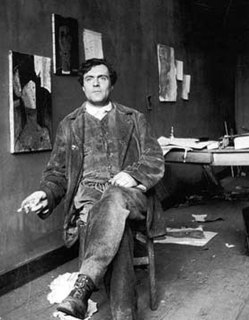A Quote by Helen Levitt
All I can say about the work I try to do, is that the aesthetic is in reality itself.
Related Quotes
The Western approach to reality is mostly through theory, and theory begins by denying reality - to talk about reality, to go around reality, to catch anything that attracts our sense-intellect and abstract it away from reality itself. Thus philosophy begins by saying that the outside world is not a basic fact, that its existence can be doubted and that every proposition in which the reality of the outside world is affirmed is not an evident proposition but one that needs to be divided, dissected and analyzed. It is to stand consciously aside and try to square a circle.
I think everybody starts out by seeing a few works of art and wanting to do something like them. You want to understand what you see, what is there, and you try to make a picture out of it. Later you realize that you can't represent reality at all - that what you make represents nothing but itself, and therefore is itself reality.
Then there is the further question of what is the relationship of thinking to reality. As careful attention shows, thought itself is in an actual process of movement. That is to say, one can feel a sense of flow in the stream of consciousness not dissimilar to the sense of flow in the movement of matter in general. May not thought itself thus be a part of reality as a whole? But then, what could it mean for one part of reality to 'know' another, and to what extent would this be possible?



































